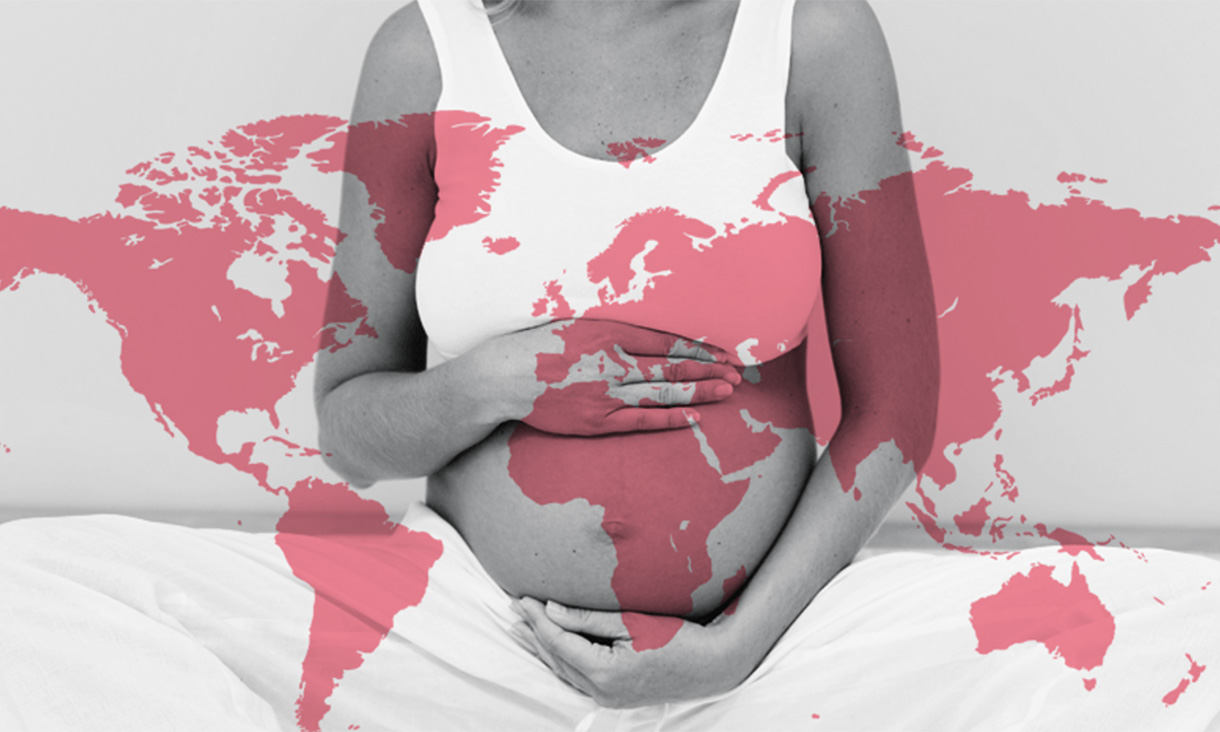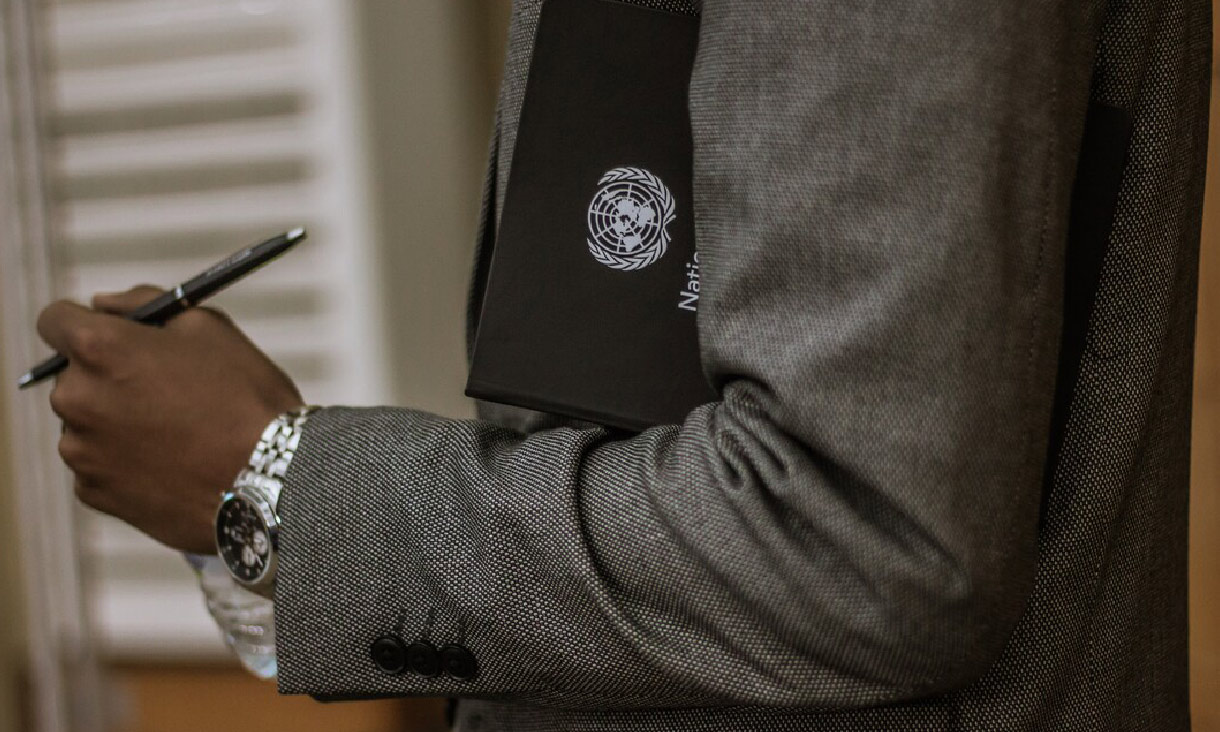For many people, due to domestic restrictions in Australia, ‘cross border’ surrogacy—where the mother resides in another country—is the only viable option. (Surrogacy is where a woman—the “surrogate” or “birth mother”— agrees to try to have a baby for another person or a couple, known as the “intended parent(s)”. If a baby is born, the surrogate gives custody and guardianship of the baby to the intended parents, through a court order).
Now, imagine going through this process during COVID-19.
COVID–19 travels bans have resulted in dozens of babies born through cross-border surrogacy being stranded in temporary accommodations overseas. At least 52 Australian couples have been met with such adversity, with their babies, born through surrogacy, stranded offshore. This impacts the babies, the intended parents (those who seek a baby from a surrogate) and the surrogate mothers living overseas. Babies may be placed in significant danger of being sent to orphanages, or being abandoned. As such, intended parents face additional costs, uncertainty and anxiety. In turn, surrogate mothers face heightened health risks and risks of non-payment by intended parents who may be financially impacted through job loss. The pandemic has amplified the varied risks and human rights violations that have always been entailed in cross-border surrogacy, including children welfares risks and the potential exploitation of surrogates.
Dire consequences of restricted travel during the COVID-19 pandemic
Sarah Jefford, a prominent Australian surrogacy lawyer, recently explained to me the dire situation of surrogate babies from Ukraine, who are stranded offshore due to travel restrictions on parents:
“in Ukraine, a number of recently born infants are left without parents, who have been unable to reach their destination to be with the baby, which means others – nannies, hospitals, and surrogates – are required to administer care for the baby in the interim.”
Although Ukraine allow intended parents to apply for special entry permits, these applications have to come from the embassy. According to, Sam Everingham, the founder of Growing Family (a not-for-profit organisation dedicated to supporting Australians through their surrogacy journeys), this is time-consuming and not always successful. The outlook for people who have surrogates in the United States and Canada are better. Both are popular, though more expensive, destinations for surrogacy. Most travel to the United States and Canada is feasible, although intended parents must be in quarantine for 14 days once they arrive in the US or Canada and then again once they return to Australia.
COVID-19 has escalated the costs - and risks - of an already expensive process for intended parents. Some intended parents were financially able to travel abroad months earlier than the expected birth time, to prevent separation due to tightening travel restrictions. Sarah Jefford explained that one of her Australian clients (an intended parent) flew to America 5 weeks prior to her baby's due date, 3 weeks earlier than planned, fearing she may be blocked entry to the United States. In this case, the father did not travel and so will miss the birth. When mother and baby arrive in Australia they will be forced to quarantine for 14 days in a hotel. This family separation creates anxiety during an already anxious time for new parents.
Foster Care, Orphanages and Statelessness for Babies
Agents are attempting to avoid being stuck with babies by forcing intended parents to agree to these arrangements as backstops. American intended parents Kasey and Jared Siegel reported being informed by their US surrogacy agency that they were required to sign over custodial rights, by agreeing that the surrogacy agency could appoint a designated guardian for the child if the parents were not present. In this case, the surrogacy agency warned that failure to consent would result in the baby being placed into foster care. This was also reported by Australian intended parent Russell Shields, who is in Georgia to collect his surrogate triplets. Shields reported that official communication from the agent/ agency does not refer to the destination as being an orphanage, although this would be the repercussions. This raises concern that once a baby enters the orphanage system or foster care in the surrogacy destination, they may be difficult to extract.
Health risks
As the global pandemic transmission curve is still rising, babies remaining at the surrogacy destination may be exposed contracting COVID-19, which has now been shown to be a risk for newborns. This risk is heightened for babies moved to orphanages where social distancing and other preventive measures are more difficult. Medical treatment may not be easy to access for babies born through off-shore surrogacy as they usually do not have medical insurance in the surrogacy destinations.
Statelessness
Even where parents are able to bring babies back to Australia, they must navigate legal hurdles with regards to national identity. During the epidemic, the Australian bureaucracies that issue birth certificates, as well as services that translate documents and notarize them have been closed indefinitely. This means that the processes required for processing Australian citizenship are not available. Russell's triplets, for instance, are seven weeks old, but they still have no nationality.
Surrogate mothers are more vulnerable than ever
Amid the COVID-19 pandemic, surrogate mothers are more vulnerable than ever, particularly in developing countries. Sam reports that surrogates are experiencing heightened anxiety. With public transport closed in Ukraine and Georgia, they can’t travel to appointments for check-ups. COVID-19 risks are exacerbated by the practice of keeping mothers in collective dormitories where social distancing is impossible. These dormitories risk mass infection. There are also concerns that surrogate mothers will suffer financially as payments cease due to the intended parents becoming unemployed following economic changes caused by the COVID-19.
Pressure on parents
The pressure on intended parents is also unprecedented. The costs of cross-border surrogacy have always been high for intended parents. These costs are multiplied as a result of COVID-19. Through interviews, intended parents have told me that they need to travel at great cost to the surrogacy destination to collect their baby. Parents unable to collect their babies due to the travel ban must pay for post-natal care. This places a cost burden on parents, who may have lost work and income due to the epidemic. Many intended parents have postponed their plans for cross-border surrogacy due to the ballooning costs of surrogacy. An intended parent named Richard advised me that:
“I am very stressed out. I had planned to go to the United States for surrogacy this year, but the outbreak caused the plan to be postponed. As the Australian dollar is currently depreciating against the US dollar, I am also worried that my savings will not be enough to cover the costs of surrogacy in the United States next year.”
How existing laws and new pandemic restrictions have caused this problem
When life and health are at stake, there is no law to apply and the Australian bureaucracies are temporarily closed. COVID-19 has exposed the real human rights risks in our current approach to surrogacy in Australia. For example, the lack of clarity in the law including ambiguities regarding the definition of ‘parent’ and ‘child’, result in ‘limping’ legal parentage. The lack of protection in law for the rights of surrogates outside Australia where Australian parents are involved. The risks were real before COVID-19 but they are now more obvious.
Australian restrictions on commercial surrogacy do not prevent citizens from accessing surrogacy services from outside their own country, but rather, forces intended parents to go offshore. Normally, this occurs through the assistance of agents who arrange commercial surrogacy in countries where commercial surrogacy is legal. It is in this strata that the business and human rights concerns come in. There is little in the way of specific provisions regulating surrogacy facilitators in Australia, which renders cross-border surrogacy even more fraught with uncertainty. Illegal intermediaries are suspected of participating in the trafficking of children and women.
How these human rights breaches can be stopped
At the national level, The Department of Foreign Affairs and Trade has announced that it is providing consular support to couples facing the difficulties described in this article. Intended parents are also doing a great deal to support each other through this time. There is an active Facebook group for those with babies due overseas. Within the professional community, Growing Families is also providing some support and information for people with travel requirements. There are also proposals for Facebook Live sessions with surrogacy counsellors to keep dialogue open regarding the impacts on intended parents and surrogate mothers. However, these initiatives do not help surrogate mothers.
It is time to reconsider how to regulate cross-border surrogacy arrangements. It is becoming apparent that restricting cross-border surrogacy has become invalid and even harmful, as the misfortunes of this epidemic reinforce. Therefore, restrictive and prohibitive legislation should be replaced by more realistic policies. These policies should be based on the reality of the cross-border surrogacy market. Accordingly, I argue that the lack of regulation of the cross-border surrogacy market should be regarded as the core of the problem. My research shows that the key to regulating surrogacy arrangements, in the immediate term, is through the agents. Most cross-border commercial surrogacy arrangements occur the agent as intermediary. Oversight of these third parties would go a long way toward mitigating the unethical conduct that transpires during cross-borders surrogacy. My research indicates that it is highly likely that local and international legislation can be jumpstarted through steps taken by the Hague Convention on Intercountry Adoption to oversee and regulate agencies. A central authority mechanism can be established for supervision and authorization agencies, while allowing for-profit or non-profit individuals and organizations to participate in cross-border surrogacy, so long as they meet relevant minimum standards and fulfil a registration process. Although cross-border surrogacy is unlike cross-border adoption in a number of ways, the threats to children’s rights and best interests, as well as the exploitative practices of agencies for commercial gain, show a high degree of similarity. Consequently, I support a move by the Hague Private International Law and the Hague Conference to adopt a Hague Surrogacy Convention, composed of principles and regulatory frameworks similar to those of intercountry adoption. In this way, the Convention may allow for national laws and for local governments and private individuals to play a role in in the regulation of transnational surrogacy, providing latitude for-profit and non-profit institutions to undertake key service related to surrogacy, subject to government regulation and supervision. Through the regulation of international law, international coordination can be enhanced, and the behaviour of transnational surrogacy agencies can be more strictly controlled.
The formulation of international treaties is a lengthy process, and the problems caused by cross-border surrogacy are imminent. Therefore, the Australian surrogacy industry needs to independently undergo systemized regulations, which requires that professional surrogacy facilitators need to be subjected to oversight, and that experts are in place, and that operations are streamlined and transparent. As an initial step in Australia, a licensing board with a strict code of professional ethics should undertake mandatory licencing of surrogacy facilitators and charged with enforcing the principle of preventing undue gains, preventing intended parents from being overcharged and agents from using surrogacy to obtain inordinate profits. The board would also determine a rate of fair compensation for surrogates appropriate to the location of the surrogate and preclude agents from making arrangements that pay surrogate mothers an inadequate amount or endanger their rights to bodily integrity and medical confidentiality. Across the industry, professionalism and professional ethics is essential to mitigate risks of exploitation of surrogate mothers and intended parents and to prevent the trafficking of children. Moreover, clearer laws regarding the protection of children should be passed to bring Australia into line with the Convention on the Rights of the Child, and to ensure that children are not left stateless or without legal parents.
As the complexity of cross-border surrogacy at any time renders all parties vulnerable, this epidemic exponentially intensifies existing vulnerabilities, demonstrating the urgency of new policy approaches to regulating commercial surrogacy.







